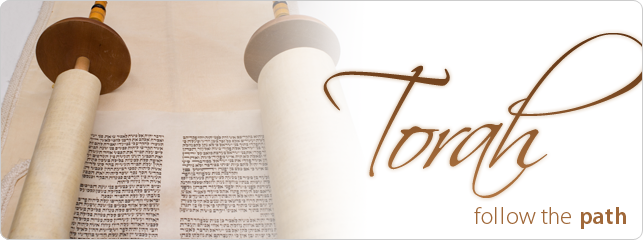[This was first posted in 2012. The original title was: Where in what bible is His Word? For this post, we have retitled it “Where in What Bible is Whose Word?” This, we feel, well reflects any book that claims to be “the very words of God” and therefore, it is no wonder that the biggest seller of all time (or so we imagine anyway), is the 2-part Christian Bible. It is also the most translated, retranslated, republished, revised, most purchased but least read., much less understood. And if we might add its “Old” Testament is hardly an accurate translation of the Hebrew Scriptures. Does this post answer its own title-question? Find out.–Admin1.]
Here’s a short version of “the shrinking of a Sinaite’s Bible.”
- As Christian/Messianics, we believed the Christian Bible is God’s Word; every word of it, we were taught, was God-breathed, Holy Spirit-inspired; that God used men as His mouthpieces. So every writer in both the Old and New Testaments spoke for God. Other articles in this website explain when and what we discovered about the questionability of New Testament books. Totally convinced that the NT is not the Word of God but the word of men, we turned to what it claims to be its foundational scriptures —the “Old” Testament.
- The “Old Testament” in the Christian Bible, we found out, was not an accurate version of the Hebrew Scriptures so we got several different translations of the Tanach, Tanakh, TNK and started over. By the time we finished pouring over the 22 books of the Hebrew Scriptures, we reached a definite conclusion.
- The first five books of TNK, specifically the Torah [the T in TNK] contains all that humans need to know about the requirements of the Creator God Who revealed Himself first to Israel. Requirements for what? Relationships! First, man’s relationship with God, and second, man’s relationship with his fellowmen. And, let us not neglect, one’s relationship to oneself, as in — how do I protect my body from disease, what to eat, what to do when I get sick, and so on. YHWH did not leave out instructions affecting any aspect man’s living on this earth for his own good.
It is ALL in the Torah, as given to the handpicked mediator who was prepared for this role: Moses. We have mentioned this much in other articles — that the rest of the TNK, Nevi’im or the Prophets, and Ketuvi’im or the Writings, all center on what has already been given in Torah. The prophets in Nevi’im who keep saying “Thus saith the LORD” warn Israel about its failure to live Torah and gives prophecies about future events affecting Israel as well as the nations. The Writings in Ketuvi’im are inspired books that still refer back to the Torah, or elaborate on its teachings, or narrate stories about men and women of faith, or that reflect on YHWH’s attributes. None of them contradict what has already been revealed on the Torah. YHWH gives a warning in the last book of the Torah about adding or subtracting from it.
So where is God’s Word in What Bible? Answer: Imbedded in The Torah, and in the Hebrew Bible.
The Creator God Who identified Himself as the God who formed Israel through its patriarchs Abraham, Isaac and Jacob spoke to Moses initially, then to Moses and Aaron, then to Israel’s leaders, then to the mixed multitude gathered at the foot of Sinai.
That God revealed His Name to Moses as YHWH so that Israelites as well as Pharaoh and the Egyptians could thence identify that God Who spoke from Sinai.
That God on Sinai wrote His Ten Words on two stone tablets which were broken by Moses, then He wrote His Ten Words a second time on a second set of tablets.
Then, to elaborate on those 10 Commandments, He gave Moses detailed instructions about 603 more statutes and ordinances, and repetitive reminders and warnings, even a recapitulation in Deuteronomy for the benefit of the second generation of Israelites born in the wilderness who would conquer the promised land with Joshua and Caleb, the remaining two from the original generation who stood at the foot of Sinai.
If the God on Sinai Whose Name is YHWH changed His nature and His plans through the centuries to spring a surprise on poor Israel, in whose national memory the Torah was instilled, whose covenant was superseded by a second covenant with a gentile church, then what kind of a God is He? It is the ultimate insult to YHWH that He would be characterized as such by the “newer” testament, which “newer” scriptures reconfigured Him from One to a confusing three-in-one godhead, with a new name to be uttered by all men to replace His, just to gain access to Him, which He Himself never imposed as a rule of approach! At least not according to the “original” God Who revealed Himself in the original Torah and the original Hebrew Scriptures. That Self-revealing God is portrayed as constantly reaching out to humanity, to His servant and son and chosen Israel, with compassion for the “stranger” and the “foreigner” among them . . . the Gentile.
When Christians say the God of Israel is still represented in the Trinity as the Father, so that He’s still in the picture — well, He has been eclipsed by the Son in all ways. In fact, the Name YHWH has been all but forgotten. Jews hesitate to say it, Christians only use “Father.” And everyone else uses “Lord” and “God” as if those were names.
This is why it is so important to name the God we worship. No, we all don’t worship the same God. Some worship Baal, Molech, Mother Nature, Isis, Zeus, Allah, Shiva, Vishnu . . . and Jesus. . . . Holy Spirit . . . .the “I” in idolatry, meaning self.
The God we Sinaites worship is the God Who spoke on Sinai and gave His revelation recorded in the Torah. It is His Name we are proud to declare: YHWH.
In behalf of Sinai 6000 Core Community,


